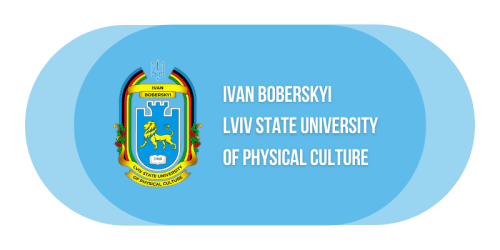| University level | First academic degree | |
| University degree and qualification | Doctor of Philosophy
Doctor of Philosophy in Management |
|
| Field of knowledge | 07 Management and administration | |
| Specialization | 073 Management | |
| Official name of the curriculum | Management | |
| Type of diploma and scope of the curriculum | Doctor of Philosophy Degree (PhD)
46 ECTS credits (educational component) Term of study – 4 years |
|
| Forms of study | Full-time (day) and part-time | |
| Accreditation | ||
| Cycle/level | Ukrainian National Qualifications Framework – level 8,
FQ-EHEA – cycle 3, ЕQF-LLL – level 8 |
|
| Prerequisites | Master’s degree | |
| Language(s) of instruction | Ukrainian | |
| Internet address of the curriculum description | https://www.ldufk.edu.ua | |
| Subject area (field of knowledge, specialty, specialization) | 07 Management and administration
073 Management Object of study: management of organizations and their divisions. Learning objectives: Training specialists capable of generating new ideas, solving complex problems in the field of management and administration, particularly in the service and sports sectors. This involves a deep rethinking of existing knowledge and the creation of new comprehensive knowledge and/or professional practice, applying the latest methodologies in scientific and pedagogical activities, and conducting their own scientific research with results that have scientific novelty, theoretical and practical significance. Theoretical content of the subject area:
Methods, methodologies, technologies, and tools:
Tools and equipment: Information systems and software products used in management. |
|
| Orientation of the curriculum | Education and Science.
The educational and scientific curriculum is aimed at forming an effective, active, and creative researcher in the field of management, who possesses systematic, scientific, methodological and professional knowledge that meets industry and regional needs; and is able to apply them in practice. The scientific component of the educational and scientific program involves conducting independent scientific research under the guidance of one or two scientific supervisors. It is not measured in ECTS credits but is documented separately in the form of an individual research plan for the student. |
|
| Main focus of the curriculum and specializations | The educational and scientific curriculum is aimed at forming a systematic scientific and managerial worldview, understanding the basics of academic culture, and the ability to rethink, analyze existing paradigms, and form new managerial knowledge and skills for the development of organizations, considering globalization, industry needs in the service and sports sectors, regional needs, and security components. The emphasis is on acquiring skills, knowledge, and abilities in management, which includes organizational and managerial, analytical, scientific, pedagogical, and security activities in the theoretical and practical fields of management, considering scientific mobility, industry, and regional needs.
Keywords: management, management strategies, sustainable development strategy, managerial research, modern information technologies, philosophy of science, organization, personnel, industry management, security management. |
|
| Features of the curriculum | The program provides fundamental knowledge and professional skills in management, considering the modern development of management science, the internationalization of knowledge, and industry and regional needs. It forms systematic, active, and creative researchers who can shape their own educational trajectory depending on the specifics of their individual scientific research by choosing elective courses. They are capable of not only applying existing management methods and tools but also developing new ones based on modern scientific achievements and practical testing, considering industry (in the fields of service and sports), security, and pedagogical components, particularly through:
|
|
| Eligibility for employment | Graduates are recommended to be employed in research institutions, higher education institutions, and other establishments and organizations that conduct research and/or train specialists in the field of management. Overall, graduates of the educational and scientific program in Management can successfully work in positions (according to the current edition of the National Classifier of Professions of Ukraine: Classifier of Professions) such as: senior officials of state and local authorities; heads of enterprises, institutions, organizations; heads of production and other main units; heads of functional units; heads of small enterprises; project and program managers; managers of enterprises, institutions, organizations, and their units; other managerial positions; research associates; research consultants; lecturers at educational institutions. | |
| Further education | Further education for Doctor of Science Degree | |
| Assessment | Assessment of the quality of mastering the educational and scientific program includes current and final knowledge control.
Current assessment – during seminars, practical classes (oral or written questioning, express control, student presentations during discussions, control works, test control, presentations, etc.). Final (semester) control – exam or credit (differentiated credit). Students are actively involved in co-teaching, peer assessment, and self-assessment. |
|
Ivan Boberskyi Lviv State University of Physical Culture
